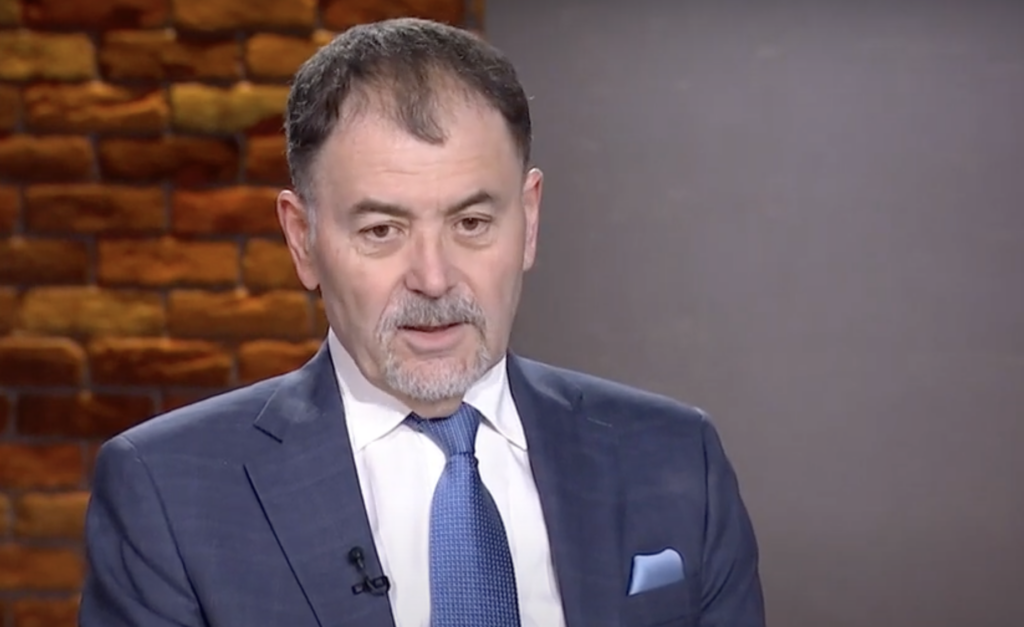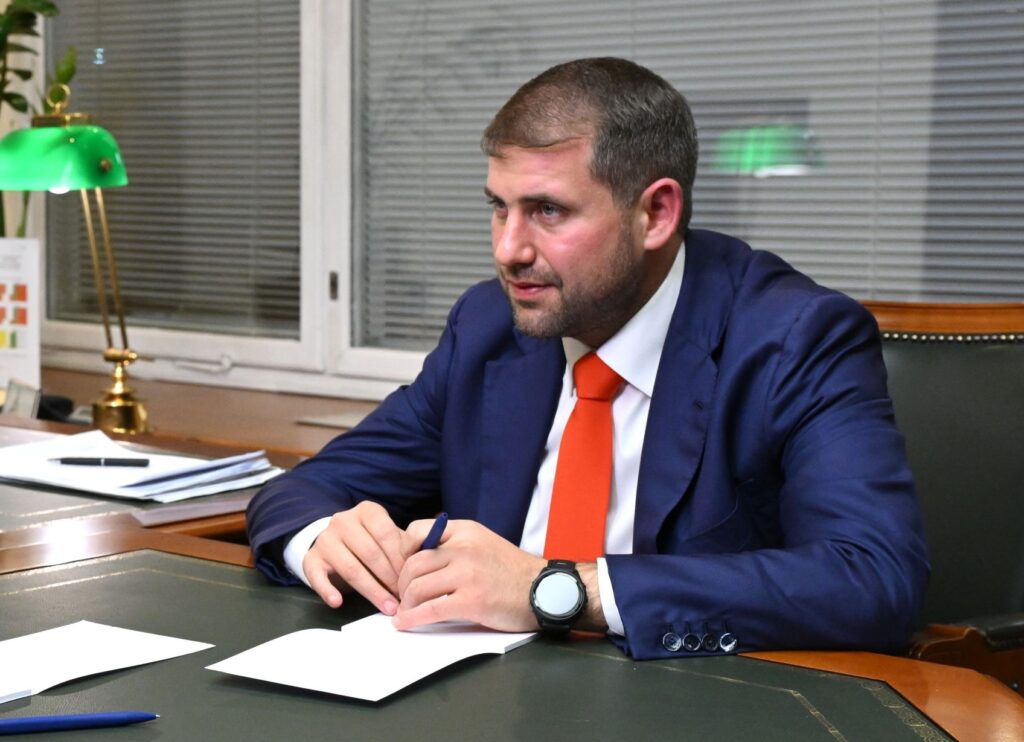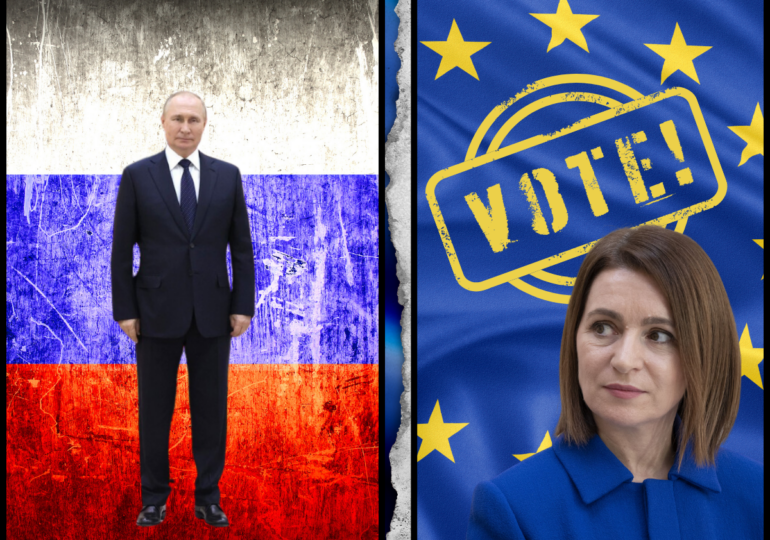The peak of the confrontation between Russia and pro-European forces in Chișinău has been reached. The presidential elections and the consultative referendum for supporting integration into the EU represent a turning point in the history of the former Soviet republic.
The validation of the referendum by the voters will represent „a second declaration of independence,” stated Anatol Șalaru, in an interview for spotmedia.ro.
Across the entire country, with an area slightly larger than Belgium but with a population six times smaller, around 2.5 million inhabitants, a hidden war is unfolding, in which the Kremlin is trying to maintain its influence and undermine Moldova’s approach to the European Union.
Anatol Șalaru, former Minister of Defense in the Republic of Moldova, a significant voice advocating for the country's separation from Russia, discussed how intelligence services are trying to thwart Moscow's hostile actions.

Mr. Anatol Șalaru, what has changed in the action mode of SIS (Intelligence and Security Service) in recent years regarding reporting on Kremlin's actions?
The attitude of SIS towards Russia's attempts to destabilize the situation in the Republic of Moldova has changed primarily. Because SIS, a few years ago, was very timid in its relations with Russia. Only when the political system decided to take a certain stance towards an event, did SIS react.
I called some compatriots living in Germany, Spain, Ireland, and the Netherlands. I invited them to vote and asked them to convince their relatives and friends that October 20 is a turning point for all Moldovans. The vote from home and the vote from the diaspora will together determine the fate of Moldova for decades to come.
Maia Sandu, President of the Republic of Moldova
So far, the service only collected information. But now, and I suspect it also has the support of Western intelligence services, those from Romania and Ukraine, not only did it have access to quality information, but it also reacted to Kremlin's challenges or actions.
AUDIO. Anatol Șalaru, discussing the changed attitude of Moldova's SIS, the intelligence service trying to thwart Russia's attacks - Source: spotmedia.ro/ Photo: Canva
But it still does not have the capacity to anticipate certain actions, as Russia operates on all levels. If we look closely, they have resorted to common law criminals, to the Moldovan Metropolis, which is subordinate to the Russian Patriarchate, they have used intellectuals, former officers from SIS, from the Ministry of Internal Affairs, and the army, corrupt politicians.
You mentioned that SIS should be proactive, to anticipate and act in advance?
Yes, because Ilan Șor has more money at hand than the SIS budget.
Ilan Șor has the support of Russian secret services with extensive experience.
He has the Russian Ministry of Foreign Affairs behind him, which coordinates research institutions and analyzes the situation in each former Soviet republic very well.
They have implemented new methods in the fight for destabilization and discrediting the referendum in Moldova. They still coordinate troll factories, which have been extremely active during this period. Although authorities managed to close dozens of accounts on social networks propagating lies, Russian trolls continued to act.
AUDIO. Anatol Șalaru talks about the political decision that can mobilize institutions to resist pressures coming from Moscow - Source: Spotmedia.ro/ Photo: Canva
Many people and resources are involved because Russia is aware that this referendum represents the second declaration of independence of the Republic of Moldova. It is crucial for us that it is validated by the voters, gathering the necessary number of votes and turnout (at least 35% voter turnout and majority vote).
The referendum is a unique opportunity to confirm that Moldovans are ready to determine their own destiny
Anatol Țăranu, historian, Member of Parliament, Republic of Moldova
The fact that Russia has invested hundreds of millions of dollars, why do I say this, because last month a sum of 15 million dollars was announced to be used to buy anti-referendum votes.
Immediately, Ilan Șor announced that he has many more funds at his disposal. According to estimates, so far, over 130,000 people have received money from Ilan Șor to engage actively in the presidential electoral campaign and against the referendum and against Maia Sandu. An action of such magnitude has never happened in Moldova before.
There has never been such great pressure from Russia. Hundreds of young people have been trained in military camps in different foreign countries. Priests have been summoned to Moscow and trained to campaign against the West, to promote anti-European, anti-Romanian, and pro-Russian propaganda. Furthermore, they collect signatures for pro-Russian candidates in the presidential elections. They go from house to house seeking signatures.
Russia wants Moldova to remain in its sphere of influence.
You mentioned that SIS uses information from Western partners. But they have received information before. Do you believe they only started using the information since the war in Ukraine began?
SIS has always had information, and I believe they were just monitoring the situation, and back then, Russian influence agents were not as active.
We must understand that SIS does its duty, but the decision lies with the political class, with the government. Because SIS cannot prosecute, it only informs, and the government decides whether to act or not. And the government's attitude at the beginning of the war in Ukraine, in the first half-year, was very cautious, very attentive.
AUDIO. Anatol Șalaru talks about the lack of reform in the justice system that fails to punish those who conspire against Moldova - Source: Spotmedia.ro/ Photo: Canva
They did not take action; they distanced themselves from everything happening out of fear of Russia because even the West did not know what would happen. The West believed that Ukraine would fall in two weeks, but that did not happen. And if the West believed in Russia's victory, what should the government or Maia Sandu believe? They were terrified that one day we could wake up with the Russian army in Chișinău.
How does SIS collaborate with the justice system? Do you see a judicial reaction to the gathered information?
There is a blockage somewhere. For example, with this Evghenia Guțul, the governor of Gagauzia, (a strong supporter of Russia) has had a criminal case for over a year, but it has not been concluded. There is a blockage somewhere because prosecutors and police make cases, pass them on, and then they stall.
There is a problem somewhere because justice reform has not been fully implemented. The system has not been cleaned up. Part of the justice system still responds to calls from abroad.
The European Union begins as soon as you cross the Prut River. You can see for yourself the difference between the left bank and the right bank
Igor Grosu, President of the Moldovan Parliament
But there are still issues because we have a law explicitly stating that representatives of the church who engage in propaganda, get involved in politics, promote war should be punished, but nothing has happened.
I found out that 20 priests are being investigated, criminally prosecuted, but nothing is known yet, who these priests are, what the accusations are.
And you can imagine that we have 130,000 people who have been paid to actively participate in the presidential electoral campaign and the referendum. The justice system is overwhelmed. You can't file 130,000 cases in a month. Especially now, when they have to monitor the smooth conduct of the elections.
Who is Anatol Șalaru
Anatol Șalaru is a politician and former Minister of Defense of the Republic of Moldova, known for his pro-European and pro-NATO views:
- Political Career: Anatol Șalaru was one of the founding members of the Christian Democratic People's Party (PPCD), where he played an active role. Later, he joined the Liberal Party of Moldova, holding important positions.
- Minister of Transport and Road Infrastructure: From 2009 to 2013, Șalaru served as Minister of Transport and Road Infrastructure, contributing to the modernization of the road infrastructure in the Republic of Moldova.
- Minister of Defense (2015-2016): Anatol Șalaru held the position of Minister of Defense between July 2015 and December 2016. During his tenure, he advocated for closer ties with NATO and supported the modernization of the armed forces of the Republic of Moldova. He was also a vocal critic of Russian influence in the region and advocated for the withdrawal of Russian troops from the separatist region of Transnistria.
- Political conflicts and dismissal: In December 2016, Anatol Șalaru was dismissed from the position of Minister of Defense at the request of President Igor Dodon, following a conflict with the leader of the Liberal Party, Mihai Ghimpu. The differences between Șalaru and the party leadership led to his exclusion from the political party.
- Subsequent activity: After being dismissed from the ministerial position and excluded from the Liberal Party, Anatol Șalaru continued to be active in politics. In 2017, he founded the National Unity Party (PUN), a political party that advocates for the unification of the Republic of Moldova with Romania.
Șalaru is appreciated for his courage and pro-Western orientation, and criticized by supporters of Moscow for his statements regarding relations with Russia and Transnistria.
Who is Ilan Șor
Ilan Șor is a politician and businessman from the Republic of Moldova, known for his controversial involvement in the country's politics and business.

- The billion-dollar theft. Șor was born in Israel and became known in Moldova mainly through his activities in the banking and trade sectors. He was involved in corruption scandals, the most notorious being the "billion-dollar theft" from the Moldovan banking system, where approximately one billion dollars was siphoned from three Moldovan banks in 2014.
- Convicted. Șor was accused of playing a central role in this financial fraud, and was later sentenced in the first instance to seven and a half years in prison.
- Populism. Politically, Ilan Șor became mayor of the city of Orhei in 2015 and later founded the Șor Party, which promotes a populist agenda with promises of rapid improvement in living standards and combating poverty. His party managed to gain part of the electorate through populist measures, such as distributing food, free goods to residents, and cash.
- Kremlin's friend. Ilan Șor and his party have a pro-Russian orientation, being associated with political forces that support closer ties with Moscow and oppose the European integration of the Republic of Moldova.
- Funds from Moscow. Șor benefits from support from Russia, both financially and logistically, to destabilize the political situation in Moldova and influence the country's geopolitical direction. In addition, his network of influence has connections with Russian business circles and officials.
- Attack on Moldova. In recent years, Moldovan authorities have issued an arrest warrant for Șor, who is currently a fugitive living in Moscow. He continues to have political influence from exile, including supporting protests and actions against the pro-European government in Chișinău.

